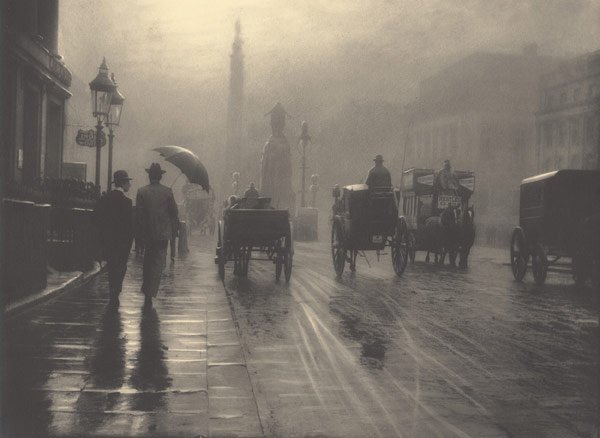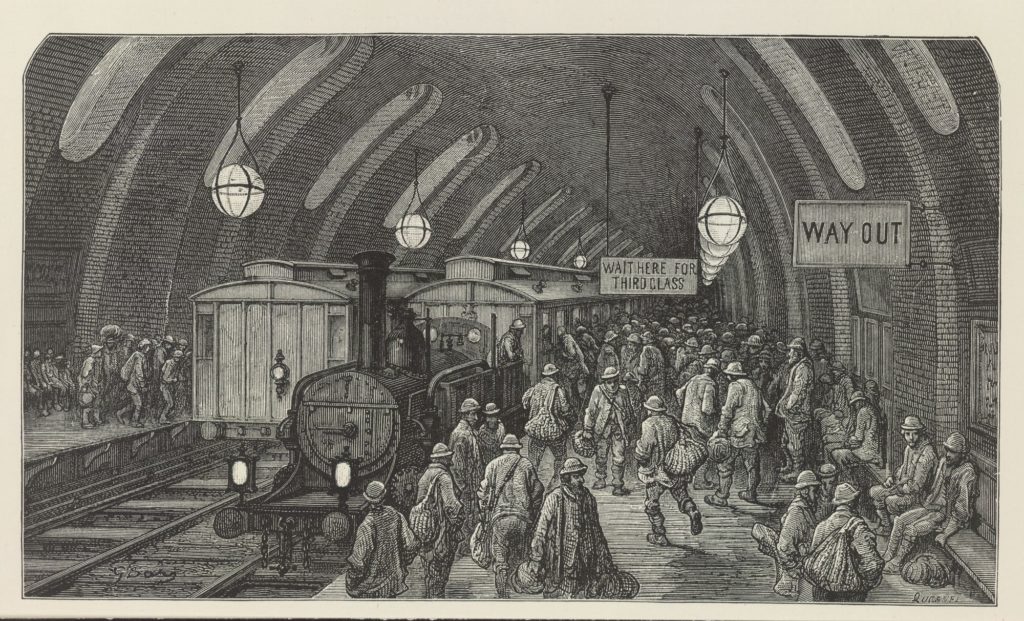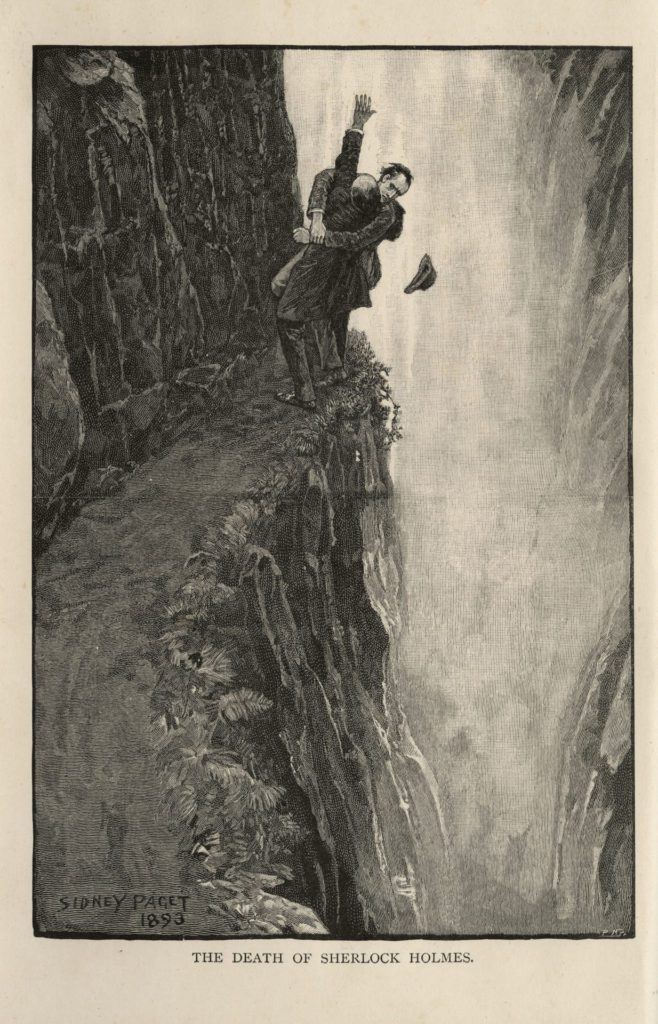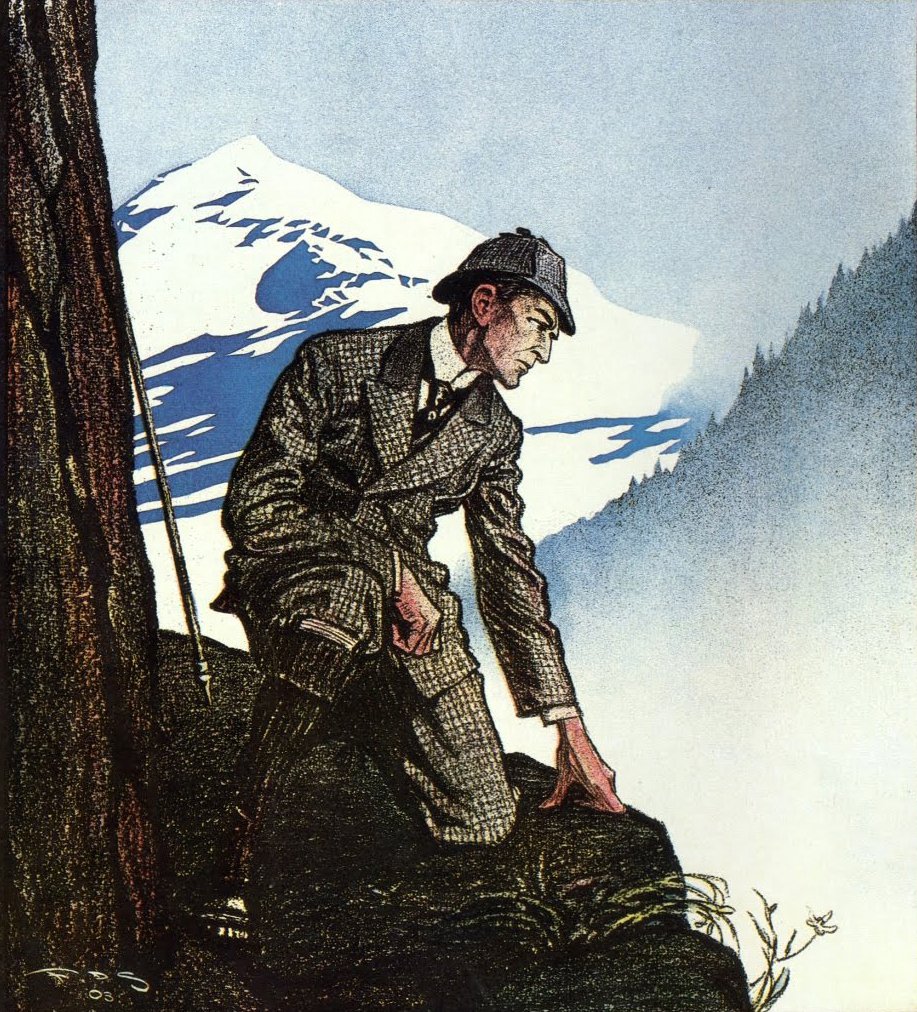
January 6 has come to be known as Sherlock Holmes’s birthday. Though the exact date was never specified in the stories, January is mentioned. Christopher Morley, founder of the Baker Street Irregulars, solidified the date and it’s been celebrated since. Considering Holmes’s line of work, the “Epiphany” is as fitting a day as any other.
I genuinely love the stories and in addition to a number of book editions, I also keep an electronic copy on my tablet. Many a sleepless night have been made more comforting by reading a bit of Sherlock in the quiet hours. I read through the stories, then go back to the beginning and read them again.
I also keep a running list of my favorite lines. There truly are some moments of wisdom that can be applied to many aspects of life.
A Study in Scarlet (1887)
“You know a conjurer gets no credit when once he has explained his trick, and if I show you my method of working, you will come to the conclusion that I am a very ordinary individual after all.”
“To a great mind, nothing is little.”
“There’s the scarlet thread of murder running through the colourless skein of life, and our duty is to unravel it, and isolate it, and expose every inch of it.”
“…where there is no imagination, there is no horror.”
“It is a mistake to confound strangeness with mystery.”
The Sign of Four (1890)
“Crime is commonplace, existence is commonplace, and no qualities save those which are commonplace have any function upon earth.”
“There was, to my mind, something eerie and ghost-like in the endless procession of faces which flitted across these narrow bars of light,—sad faces and glad, haggard and merry.”
“While the individual man is an insoluble puzzle, in the aggregate he becomes a mathematical certainty. You can, for example, never foretell what any one man will do, but you can say with precision what an average number will be up to. Individuals vary, but percentages remain constant. So says the statistician.”
Boscombe Valley Mystery (1891)
“Singularity is almost invariably a clue. The more featureless and commonplace a crime is, the more difficult it is to bring it home.”
“Moonshine is brighter than fog.”

A Case of Identity (1891)
“I can never bring you to realize the importance of sleeves, the suggestiveness of thumb-nails, or the great issues that may hang from a boot-lace.”
The Five Orange Pips (1891)
“Philosophy, astronomy, and politics were marked at zero, I remember. Botany variable, geology profound as regards the mud-stains from any region within fifty miles of town, chemistry eccentric, anatomy unsystematic, sensational literature and crime records unique, violin-player, boxer, swordsman, lawyer, and self-poisoner by cocaine and tobacco. Those, I think, were the main points of my analysis.”

The Man with the Twisted Lip (1891)
“Oh, a trusty comrade is always of use; and a chronicler still more so.”
“There is nothing so important as trifles.”
The Adventure of the Blue Carbuncle (1892)
“…one of those whimsical little incidents which will happen when you have four million human beings al jostling each other within the space of a few square miles. Amid the action and reaction of so dense a swarm of humanity, every possible combination of events may be expected to take place, and many a little problem will be presented which may be striking and bizarre without being criminal.”
The Adventure of the Speckled Band (1892)
“To me at least there was a strange contrast between the sweet promise of the spring and this sinister quest upon which we were engaged.”
The Adventure of the Engineer’s Thumb (1892)
“The story has, I believe, been told more than once in the newspapers, but, like all such narratives, its effect is much less striking when set forth en bloc in a single half-column of print than when the facts slowly evolve before your own eyes, and the mystery clears gradually away as each new discovery furnishes a step which leads on to the complete truth.”
“We went upstairs together, the colonel first with the lamp, the fat manager and I behind him. It was a labyrinth of an old house, with corridors, passages, narrow winding staircases, and little low doors, the thresholds of which were hollowed out by the generations who had crossed them.”

The Adventure of the Noble Bachelor (1892)
“By the same brilliant reasoning, every man’s body is to be found in the neighbourhood of his wardrobe.”
The Adventure of the Copper Beeches (1892)
“If I claim full justice for my art, it is because it is an impersonal thing–a thing beyond myself. Crime is common. Logic is rare. Therefore it is upon the logic rather than upon the crime that you should dwell.”
The Adventure of the Yellow Face (1893)
“He held it up and tapped on it with his long, thin fore-finger, as a professor might who was lecturing on a bone.”
The Final Problem (1893)
“‘If you are clever enough to bring destruction upon me, rest assured that I shall do as much to you.’
‘You have paid me several compliments, Mr. Moriarty. Let me pay you one in return when I say that if I were assured of the former eventuality I would, in the interests of the public, cheerfully accept the latter.'”

The Adventure of Charles Augustus Milverton (1904)
“You know, Watson, I don’t mind confessing to you that I have always had an idea that I would have made a highly efficient criminal.”
The Adventure of the Six Napoleons (1904)
“It was at such moments that for an instant he ceased to be a reasoning machine, and betrayed his human love for admiration and applause.”

